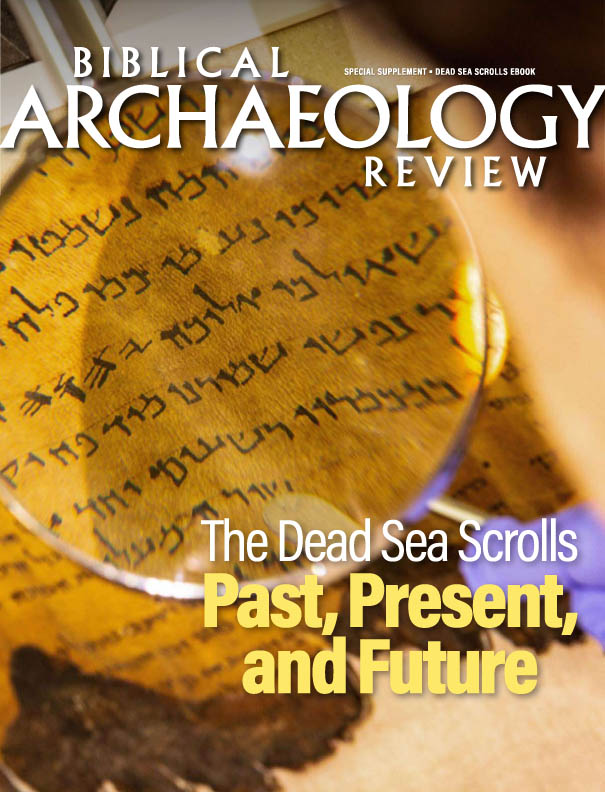Board games have been around for thousands of years. Although typically used as a pastime in the modern world, they had a second use in some ancient cultures: divination. A perfect example is a rare assemblage of more than 600 astragali—knucklebones from animals used in gaming and divination—found in southern Israel. Discovered within the ancient city of Maresha’s sprawling complex of subterranean caves, these knucklebones (published in the journal Levant) give evidence of the Hellenistic city’s multiculturalism and intriguing religious practices.

Knucklebones and Board Games

Dozens of the astragali were found near a relief of a figure discovered at the Maresha site. Courtesy Dr. Ian Stern, Hebrew Union College.
Located in the Hellenized region of Idumea, Maresha had a multicultural population with a diverse religious life. One particularly intriguing practice was the use of board games and astragali as a means of divination. Although found in several areas of the site, the collection of 600 astragali is exceptionally large and likely represents their use in ritual contexts. Indeed, many were discovered in close proximity to cultic spaces, where an altar, a stone cut relief (possibly of a deity), and numerous ostraca bearing Aramaic divination texts were also found.
Within the Hellenistic world, knucklebones of ruminant animals (such as sheep and goats) were frequently used as dice in gaming and divination. Among the 600 astragali found at Maresha, some were shaved down, perforated, or filled with lead so that they could be thrown more effectively as dice. The bones date to the very early part of the Hellenistic period, approximately 2,300 years ago.
Although such divination practices were known throughout the Near East, the people of Maresha used a particularly Hellenistic version of the ritual, as evidenced by the Greek inscriptions carved into a number of the bones. Some were engraved with the names of Greek gods associated with human wishes and desires, including Aphrodite and Eros (deities of love) and Nike, the goddess of victory. Other knucklebones appear to be inscribed with game roles and instructions, such as “robber,” “stop,” and “you are burnt.”

Astragali bearing the names of gods and game instructions. Courtesy Roi Shafir, University of Haifa.
The knucklebones from Maresha would also likely have been used to play the children’s game “five stone,” which is represented in Greek and Roman art. When used for divination, the bones would have been used with game boards, examples of which have been found at Maresha. The bones would have been cast and the spot on the board where they landed would give an answer to the oracular request.
According to Dr. Lee Perry-Gal of the Israel Antiquities Authority and the University of Haifa, “The assemblage of astragali from Maresha is very unique, specifically the large quantity and good quality, and the many inscriptions. The assemblage shows that in ancient times of distress, as today, people sought help from external factors, in magic and spells, and in the world of the unknown.”
Read more in Bible History Daily:
Ancient Board Games and Daily Life
Roman Game Board Found in Turkey
Ancient Board Games in Biblical Gath
All-Access members, read more in the BAS Library:
Before Tea Leaves: Divination in Ancient Babylonia
Small Inventions? They Changed How People Lived in the Hellenistic Age
Not a BAS Library or All-Access Member yet? Join today.The post Board Games and Divination in Hellenistic Israel appeared first on Biblical Archaeology Society.



0 Commentaires